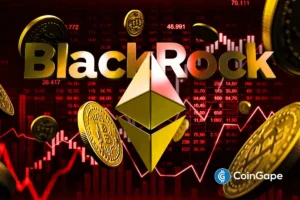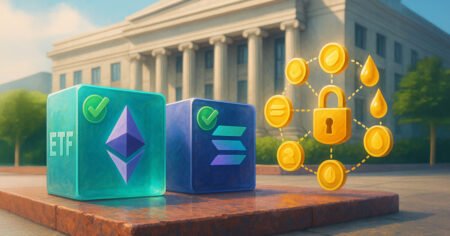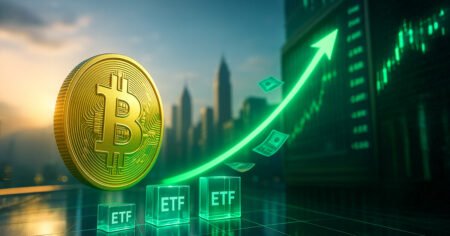The Federal Register officially added filings for spot Solana (SOL) exchange-traded funds (ETFs) from various financial institutions on February 18. The US Securities and Exchange Commission (SEC) now has 240 days to either approve or deny the filings. Additionally, the register for the Grayscale filing was added on February 12, which could potentially be approved until October 16. SOL has experienced a significant drop in value recently due to the failed launch of the LIBRA memecoin promoted by Argentinian President Javier Milei.
Bloomberg ETF analysts Eric Balchunas and James Seyffart have predicted that spot Solana ETFs have a 70% chance of approval. They mentioned that these odds could increase if the lawsuits declaring SOL as a security are resolved. The current SEC stance of halting lawsuits against crypto firms indicates a possible positive outcome for the approval of SOL ETFs. There are expectations of a wave of crypto ETF approvals in the market soon, including assets like Hedera (HBAR), Litecoin (LTC), and XRP, in addition to SOL, as the regulatory landscape in the US evolves.
Canary Capital recently announced an Axelar (AXL) trust, potentially adding another asset to the approval queue. The trust aims to provide institutional and accredited investors with exposure to AXL, the native crypto of the Axelar Network. This is the first investment trust dedicated to a general blockchain interoperability protocol, highlighting the growing demand for seamless cross-chain connectivity in the Web3 ecosystem. CEO of Canary Capital, Steven McClurg, expressed optimism about the investment opportunity that AXL presents for institutional investors.
Axelar has rapidly gained traction and by early 2025, it ranked as the 11th largest blockchain by total value locked (TVL), exceeding $1 billion. The project is expected to further expand its reach and integrate with prominent networks like XRP Ledger, Hedera, Stellar, Sui, Solana, and Bitcoin. As interoperability becomes a crucial factor in the blockchain industry, Axelar’s advanced solutions are likely to play a significant role in shaping the future of decentralized finance.
In conclusion, the addition of SOL ETF filings to the Federal Register, along with the growing interest in blockchain interoperability through projects like Axelar, demonstrates the evolving landscape of the cryptocurrency market. With regulatory changes and potential approvals for various crypto ETFs on the horizon, there is anticipation for increased institutional involvement and investment opportunities in the digital asset space. Investors are closely monitoring developments in the industry to capitalize on the potential growth and advancements in the blockchain ecosystem.

















